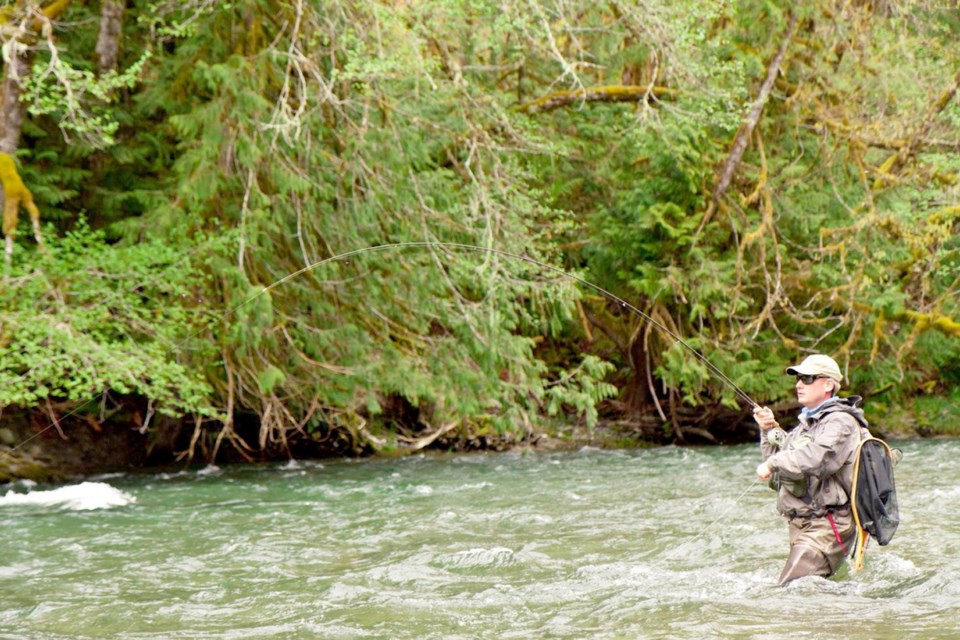Fly-fishing isn’t all about whipping a fishing line around the air like they do in the movie A River Runs Through It.
“You don’t catch fish by having your fly flinging back and forth in the air — you need to have your fly in the water,” said David Heine, one of two Victoria men who are part in an international competition in fly-fishing this week.
The America Cup International Fly Fishing Tournament is serious business, involving 80 anglers competing over three days for the right to go to the world championships in 2016.
Heine and Andy Larkin will be on the five-member Canadian team competing in Vail, Colorado.
The competition, which begins Tuesday and runs to Sept. 14, focuses on conservation, so all fish caught are promptly released.
Fly-fishing is a complicated sport, starting with the deft tying of imitation flies to lure the fish, reading the river or lake water to know where the fish are located, and handling the rod so that any fish that’s caught is reeled in.
“There’s no room for luck — you make your own luck,” said Heine, a 43-year-old electrical engineer. “It’s a lot of fun and really pushes you out of your comfort zone and teaches you a lot.”
Judging is done by points given to flyfishers at five venues, including rivers and lakes.
“You’re given three hours to fish the venue and there’s a controller measuring and counting your fish,” Heine said.
Competitive fly-fishing is huge in Europe and growing in popularity in North America, Heine said.
He was introduced to the sport by his grandfather 25 years ago and taught himself more in the ensuing years. He likes the sport for the challenge “and the fact you can tie flies and catch a fish — there’s something really primal about that.”
“I’ve had people watch me in the river … and when you’re dialed in, it’s a fish a cast. Eighty or 90 per cent of the fish are caught by 20 per cent of the people.”
It’s a common phrase among flyfishers that “the tug is the drug,” and having a fish on the line can get a novice hooked on the sport.
“Some people get addicted to the solace and the process, and sometimes it’s the catching of the fish,” he said.
He fishes the Cowichan River and enjoys meeting others out there enjoying nature. He’d like to see more people his own age or younger involved in the sport.
Fly-fishing can be expensive if you want to buy top-end equipment, he said. Rods can go for $700 to $800 and you need a few of them.
“My biggest fear is my wife will sell my fly-fishing stuff for the amount I told her it cost,” he joked.
Heine is looking forward to heading to the U.S. to compete on behalf of Canada. “It’s great when you get on a team with a bunch of people who are as nutty about fly-fishing as you are.”
Larkin was unavailable for comment but online (flyblaster.blog.com) he calls himself “an absolute fly-tying/fishing junkie.”
“I am able to fish open water 365 days a year. I absolutely live for it,” he says.
“You could call me obsessed — and you may be right.”
Information on joining the Victoria-based Haig-Brown Fly Fishing Association is at haigbrown.ca. The association is named for Roderick Haig-Brown, an English-born writer of fly-fishing books and articles. He moved to Vancouver Island in 1932 and settled on the banks of the Campbell River. He died in 1976.



